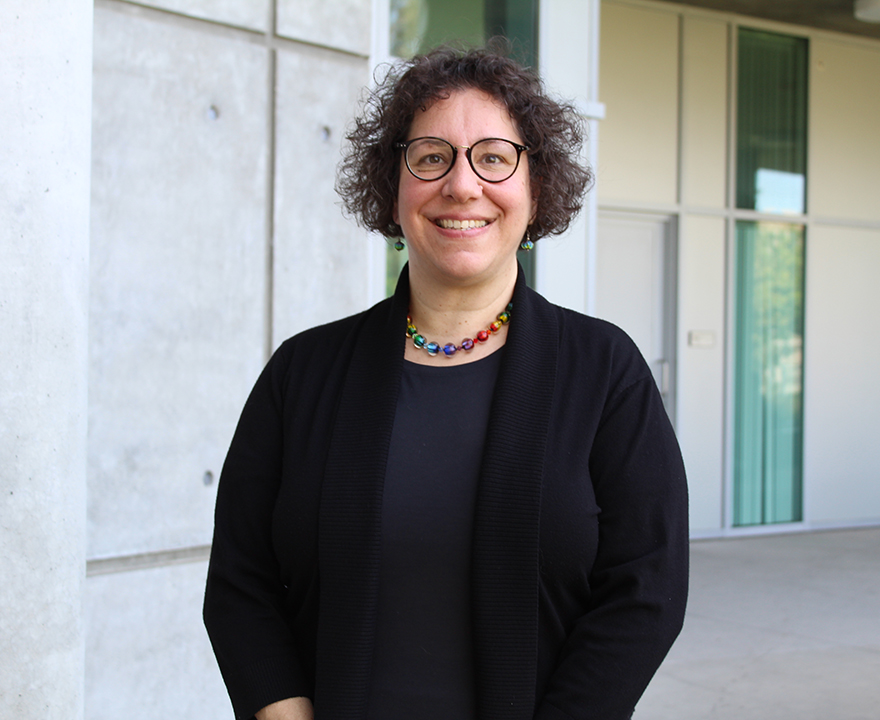Increasing educational access and impact

Increasing educational access and impact
- November 4, 2020
- UCI history professor Sharon Block donates $10,000 and spurs matching gift to support UC’s first in-prison bachelor’s degree program, an interdisciplinary initiative spanning four schools
-----
When UCI envisioned the Leveraging Inspiring Futures Through Educational Degrees (LIFTED) Initiative, it created the blueprint for the first in-prison B.A. completion program offered by the University of California system. When it launches, the program will enable eligible incarcerated participants to earn a bachelor’s degree in sociology from UCI. In so doing so, they’ll arm themselves with one of the most effective interventions for reducing recidivism and transforming lives: a college degree. And that’s something Sharon Block, UCI history professor and LIFTED curriculum subcommittee member, can get behind. She’s donated $10,000 to support the purchase of necessary books and supplies for program participants. And her spouse’s employer, Google, has made a matching gift that doubled the impact for a total of $20,000. Here, she talks about the importance of UCI’s interdisciplinary teaching, research and service environment that enabled such a life changing program to take shape and the role UC plays as a whole in increasing educational access.
What led you to get involved with the LIFTED program, and how does your research factor in?
My historical research has always been concerned with societal inequities, including that produced by the U.S. criminal justice system. Mostly, I feel strongly about increasing educational access -- I am proud to teach at a university with a demonstrated commitment to social mobility through education and I see offering an opportunity for people who are incarcerated to receive a UC degree as an extension of the UC promise of reaching all eligible students and serving the public as broadly as possible.
The impact of this program will be far reaching. Talk a bit about the population it serves and why programs like this matter.
UC's job is to serve the public, and that includes a diverse array of students, no matter where they are or how difficult it may be to grant them access to the University of California. This program will make history when it delivers a UC-quality education and degree to people in state prison. Research has made clear that this population is disproportionately of color and comes from communities with considerable poverty and comparatively few opportunities. Education can serve as an engine of social uplift, so LIFTED offers access to the opportunities afforded by higher education. As I understand it, this will be the first time UC has created this pathway to a B.A. and I am thrilled to contribute to that in any small way.
To go from working on a program to helping fund it is an amazing shift. What ultimately inspired your gift and how do you hope to see it used?
I was fortunate to be in the position to make a donation and wanted to give it to a program where I knew it would be well used and where it would go directly to decreasing obstacles -- like the cost of books and supplies -- for students. I first learned about the program from Val Jenness, Distinguished Professor of criminology, law and society in the School of Social Ecology, who has studied the interior of prisons. Her excitement convinced me of its promise and possibility, and her inclusiveness encouraged my own involvement. My involvement left me impressed with the entire leadership team -- professors Carroll Seron, Keramet Reiter, Pavan Kavandale, and Val Jenness – as well as the strong support the program has around campus, including from sociology and the School of Social Sciences. So I thought that the funds could make a real difference -- not just adding to a program already established, but hopefully providing a boost to a program that has been embraced by UCI's leadership and is being led by outstanding educators and scholars.
How did UCI’s focus on interdisciplinary efforts enable this project to launch, and how might others get involved to expand its reach?
I think a donation made by a faculty member in the School of Humanities to a project that is beginning with a major in the School of Social Sciences with a leadership team from the School of Social Ecology and School of Biological Sciences is a great example of what cross-campus projects can accomplish. I'm also very grateful to the Department of Sociology and to social sciences dean Bill Maurer for his embrace of this project and for Tracy Arcuri and the rest of the social sciences development staff for making it so easy for me to offer support. This is a program that can fundamentally change lives, so if anyone has the capacity to give, this is a fantastic way to have your funds make a real difference.
-Heather Ashbach, UCI Social Sciences
-----
Would you like to get more involved with the social sciences? Email us at communications@socsci.uci.edu to connect.
Share on:
Related News Items
- Careet RightUC Irvine closes commencement season with second LIFTED ceremony
- Careet RightRewriting Futures: Incarcerated students graduate from UC Irvine program
- Careet RightCommencement inside prison walls: Prisoners, including a Menendez brother, get college degree
- Careet Right15 incarcerated students graduate from historic partnership with University of California
- Careet RightInmates at Richard Donovan state prison graduate with UC degrees


